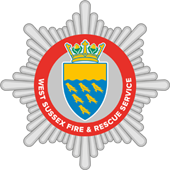If an inspecting officer visits your premises you will be asked to evidence that you have met the duties required by the Regulatory Reform Fire Safety Order 2005. How often you will be routinely visited depends on your type of premises - more information on this can be found in our Fire Safety Enforcement Strategy.
We do not carry out your fire risk assessment.
What will happen during my visit?
Your visit will involve an examination of the premises and relevant documents. This will help the inspecting officer determine how your premises is being managed with regard to fire safety.
Sometimes, the inspecting officer may wish to speak with staff to gain an appreciation of their level of fire safety knowledge.
During this process a score is generated in line with national guidance, which identifies the level of compliance achieved and any action required.
What documents should I have ready?
Examples of what may be asked to provide evidence of are:
- fire risk assessment
- action plans related to outcomes of the fire risk assessment
- policies and procedures detailing the effective planning, organisation and control of fire safety matters
- emergency plans for the premises in the event of a fire, including evacuation
- records of staff fire training and fire drills
- fire safety information for staff
- fire safety and emergency information for dangerous substances
- testing records by a competent person of the:
- fire detection and warning system
- emergency lighting
- sprinkler system
- ventilation system
- portable firefighting equipment (fire extinguishers)
- electrical installation condition report (EICR)
- portable appliance testing (PAT)
- cleaning and maintenance of kitchen extract and filter systems.
How do I know if I have reached the required standard?
We don’t have a pass or fail process in place for the visit, as a score is generated in line with national guidance. This score will lead to either:
- informal action - such as a fire safety satisfactory letter or a letter with recommendations for improvement (sometimes with a revisit from us to review improvements)
- formal action - for more severe findings, which is explained on our legal process page.


